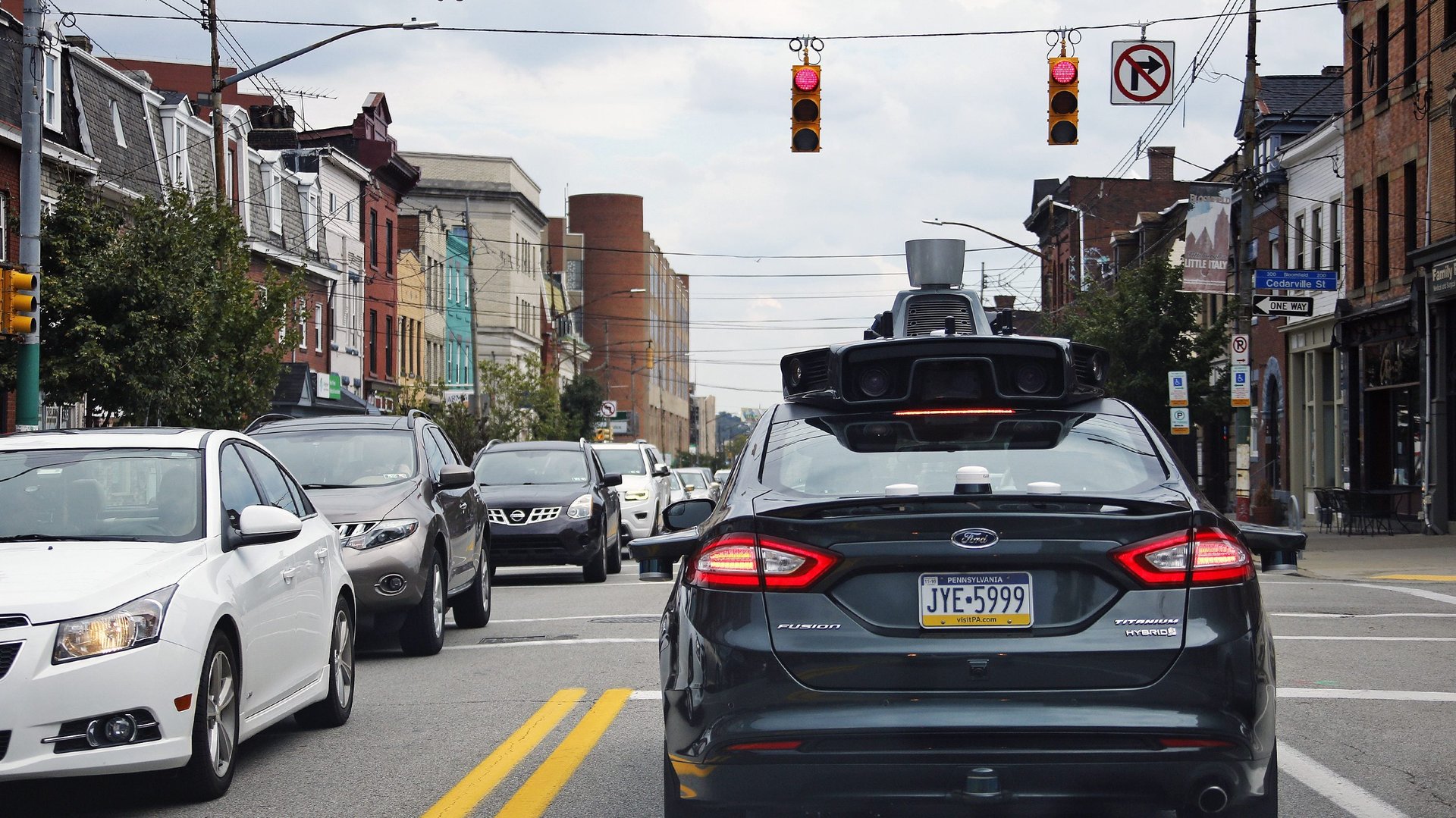Uber made early passengers of its self-driving cars sign an insane liability waiver
With the race to make driverless technology a reality intensifying, Uber has been eager to show off its self-driving cars, which began picking up passengers in Pittsburgh earlier this month. But it’s remained quiet on a more serious matter: If a self-driving Uber were involved in an accident, who would be liable?


With the race to make driverless technology a reality intensifying, Uber has been eager to show off its self-driving cars, which began picking up passengers in Pittsburgh earlier this month. But it’s remained quiet on a more serious matter: If a self-driving Uber were involved in an accident, who would be liable?
Uber declined to answer this question in mid-September, telling Quartz it would “not discuss hypothetical incidents.” Uber also said it had not established an ethics board. Those seemed like inadequate answers for a company that was starting to welcome normal Pittsburgh riders into its autonomous vehicles—albeit with a human driver monitoring things from behind the wheel—especially when tests of other driverless systems had already produced a few high-profile scrapes.
But a report published Sept. 26 by the Guardian suggests that Uber did in fact think quite a bit about liability ahead of its self-driving debut—namely, how to get rid of it:
According to documents obtained by the Guardian under public records laws, until as recently as June anyone not employed by Uber riding in one of its autonomous vehicles (AVs) had to sign a legal document waiving the company of any liability for their injury or death.
One senior Pittsburgh police officer signed a waiver on 23 June: “I acknowledge that some or all of the AVs in which I ride are in a development phase, are experimental in nature, and that riding in an AV may involve the potential for death, serious injury, and/or property loss.”
Uber reportedly ran a “Friends & Family” program this summer that allowed close contacts to ride in its modified Ford Fusions, the same vehicles that are now being used with everyday passengers in Pittsburgh. According to the Guardian, those early test riders were required to take complete responsibility for anything that might happen on their trip, including “any risks that may arise from the negligence or carelessness of [Uber and its Advanced Technologies Center], operation of the AVs and/or dangerous or defective equipment.” The liability waiver applied not only to the rider, but also to his or her “executors, administrators, heirs [and] next of kin.”
Passengers in self-driving Ubers today are covered by $5 million in accident insurance, and the Guardian reports that they no longer sign such waivers. Chelsea Kohler, a spokeswoman for Uber, pointed to both of these facts in an email to Quartz. Asked again who would be liable in the event of a self-driving car accident now that these vehicles are on the road, Uber reiterated that it does not deal in hypotheticals.